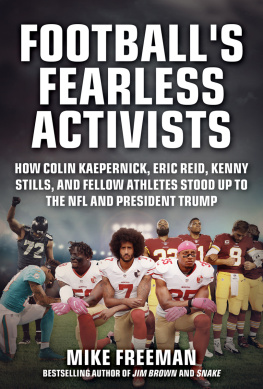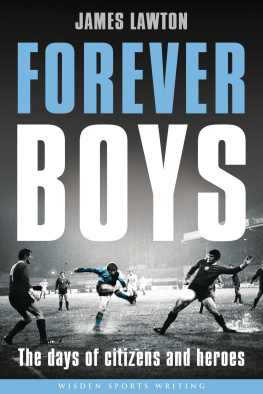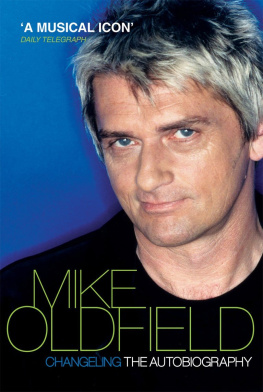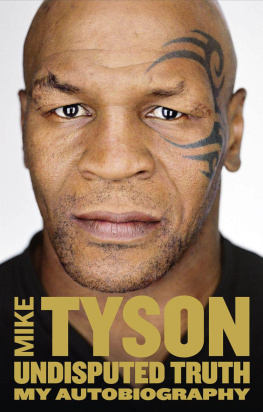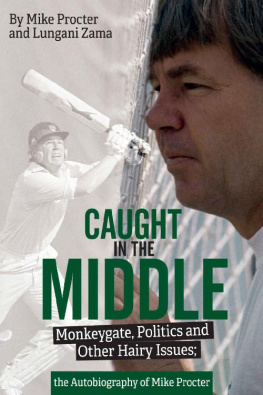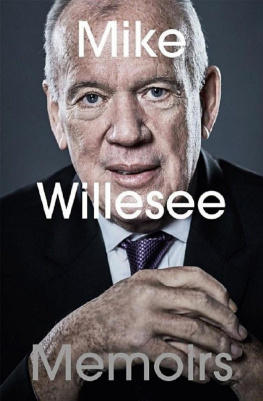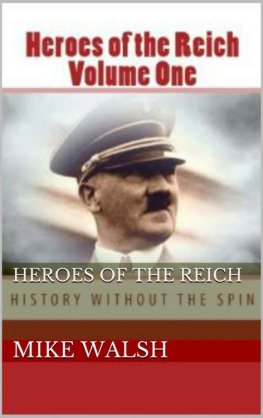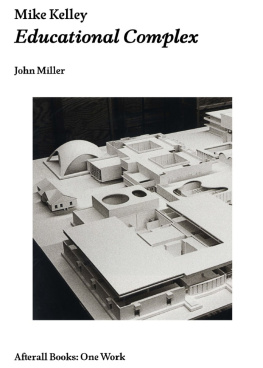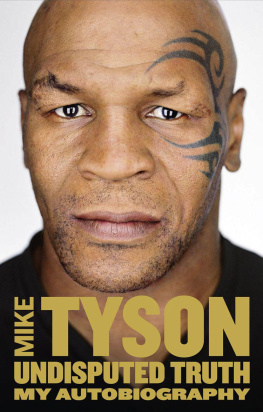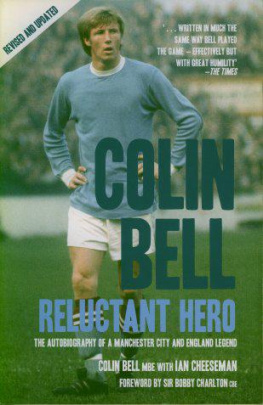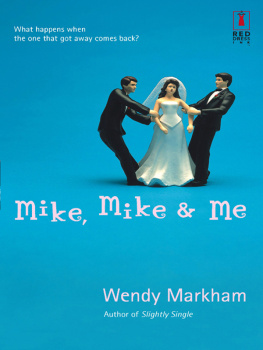Mike Summerbee - Mike Summerbee: The Autobiography
Here you can read online Mike Summerbee - Mike Summerbee: The Autobiography full text of the book (entire story) in english for free. Download pdf and epub, get meaning, cover and reviews about this ebook. year: 2008, publisher: Century, genre: Non-fiction. Description of the work, (preface) as well as reviews are available. Best literature library LitArk.com created for fans of good reading and offers a wide selection of genres:
Romance novel
Science fiction
Adventure
Detective
Science
History
Home and family
Prose
Art
Politics
Computer
Non-fiction
Religion
Business
Children
Humor
Choose a favorite category and find really read worthwhile books. Enjoy immersion in the world of imagination, feel the emotions of the characters or learn something new for yourself, make an fascinating discovery.

- Book:Mike Summerbee: The Autobiography
- Author:
- Publisher:Century
- Genre:
- Year:2008
- Rating:4 / 5
- Favourites:Add to favourites
- Your mark:
- 80
- 1
- 2
- 3
- 4
- 5
Mike Summerbee: The Autobiography: summary, description and annotation
We offer to read an annotation, description, summary or preface (depends on what the author of the book "Mike Summerbee: The Autobiography" wrote himself). If you haven't found the necessary information about the book — write in the comments, we will try to find it.
Mike Summerbee: The Autobiography — read online for free the complete book (whole text) full work
Below is the text of the book, divided by pages. System saving the place of the last page read, allows you to conveniently read the book "Mike Summerbee: The Autobiography" online for free, without having to search again every time where you left off. Put a bookmark, and you can go to the page where you finished reading at any time.
Font size:
Interval:
Bookmark:
MIKE
SUMMERBEE
THE
AUTOBIOGRAPHY
This eBook is copyright material and must not be copied, reproduced, transferred, distributed, leased, licensed or publicly performed or used in any way except as specifically permitted in writing by the publishers, as allowed under the terms and conditions under which it was purchased or as strictly permitted by applicable copyright law. Any unauthorised distribution or use of this text may be a direct infringement of the author's and publisher's rights and those responsible may be liable in law accordingly.
ISBN 9781409061762
Version 1.0
www.randomhouse.co.uk
Published by Century 2008
2 4 6 8 10 9 7 5 3 1
Copyright Mike Summerbee 2008
Summerbee has asserted his rights under the Copyright, Designs and PatentsAct 1988 to be identified as the author of this work
This electronic book is sold subject to the condition that it shall not by way of trade or otherwise, be lent, resold, hired out, or otherwise circulated without the publisher's prior consent in any form other than that in which it is published and without a similar condition including this condition being imposed on the subsequent purchaser
First published in Great Britain in 2008 by
Century
Random House, 20 Vauxhall Bridge Road,
London SW1V 2SA
www.randomhouse.co.uk
Addresses for companies within The Random House Group Limited can befound at:
www.randomhouse.co.uk
The Random House Group Limited Reg. No. 954009
A CIP catalogue record for this book is available from the British Library
ISBN: 9781409061762
Version 1.0
'The credit belongs to the man who is actually in the arena,whose face is marred by dust and sweat and blood, who strivesvaliantly, who errs and comes up short again and again, becausethere is no effort without error or shortcoming, but who knowsthe great enthusiasms, the great devotions, who spends himselffor a worthy cause; who, at the best, knows, in the end, thetriumph of high achievement, and who, at the worst, if he fails,at least he fails while daring greatly, so that his place shall neverbe with those cold and timid souls who knew neither victorynor defeat.'
Theodore Roosevelt
'To my wife, Christine Elizabeth Summerbee.
"It started with a kiss..."'
Thanks to Jim for his patience and understanding of my life andall the ways he has helped in the writing of this book.
Thanks to my children, Nicholas and Rachel, and thanks alsoto my grandchildren: Harley, Samuel, Jessica, Leah and Millie.
Thanks also to the Roman Way Hotel in Cannock, andespecially to Gemma Park for looking after us so well.
THE BEST DAY OF MY LIFE
The crowd were shaking their fists at us in the streets as we sped through every red traffic light in Glasgow, and the closer we came to Hampden Park the more hostile they were and the more intense my exhilaration became. I loved the way the police motorcycle outriders took us racing through the city, and I was almost overwhelmed by the fact that here I was sitting next to Bobby Moore on the England team bus and on the way to make my international debut. Then the silence was broken by the voice of Sir Alf Ramsey. 'Look at them Scottish barrrrstards!' he said, and I had a massive rush of adrenalin such as I'd never known before and never will again.
It was the moment it sank in that I was going to play for my country, to play centre forward for the reigning world champions and I thought it must be how Sir Edmund Hilary and Sherpa Tenzing felt when they had conquered Mount Everest and were standing on top of the world.
It was the best day of my life.
To tell the truth, the match against Scotland went so quickly it more or less passed me by. I can barely recollect any of the action on the field. What I do remember so vividly is the buildup to the game sitting on the team bus and thinking that it was an amazing decision by Sir Alf to throw an untried youngster like me into such a game in preference to great strikers like World Cup-winner Roger Hunt and the incomparable Jimmy Greaves. I thought it was astonishing in itself, and even more so when you knew that this classic old rivalry was also doubling up as a qualifying group showdown to reach the quarter-finals of the 1968 European Nations Cup.
Yet Sir Alf had done it and although I never had the natural self-belief of many other footballers, I knew that day I must be a reasonable player. You had to be if the manager of the world champions picked you. He didn't give out cheap caps.
I remember the great thrill, as well, of walking into the dressing room and seeing the pristine white No. 9 shirt waiting for me on the peg, three lions on the chest. I could hardly believe it was mine. The other thing I noticed immediately was a huge stack of telegrams on the wooden bench directly below it. There were so many of them and I read through them greedily. They were from people like Joe Mercer and Malcolm Allison, who had created my fabulous club team at Manchester City; from Francis Lee and Colin Bell, the other two members of our famous City trio; from Tommy Lawton and Stan Mortensen, two of the greatest England centre forwards; from Stan Ogden of Coronation Street; from my youthful pal at my first professional club, Ernie Hunt; and from Cecil Green, the director of Swindon Town who had spotted me playing for the Baker Street YMCA team in Cheltenham and given me the lucky break I needed to make a life in football.
All the telegrams meant so much to me. They were a symbol of the fact that what I had achieved had also given pleasure to so many other people. Football is nothing without fun and friendship, in my view, and the telegrams were very important. I wasn't married then, my family weren't at the game, so really I was on my own. But the telegrams suggested I wasn't. There they were, piled up below my No. 9 shirt, and I still have them at home in a scrapbook. There was a bit of banter from the other players in the England team, all the world champions, and I did feel a bit embarrassed as they remarked, 'We never get any of them, do we?' But it reminded them of when they had played their first match and the messages had been piled high for them, too. They knew exactly what I was feeling.
Another telegram was from George Best, my closest friend in those days in the 1960s in Manchester when life overflowed with fun: 'I SUPPOSE I CAN'T SPEAK TO YOU NOW. GOOD LUCK. GEORGE' it read. I was delighted, and I remembered how the pair of us had gone together to watch theWorld Cup Final at Wembley on 30 July 1966, to see the glory of Gordon Banks and Martin Peters and Geoff Hurst and all the other heroes I was now about to play alongside. George had driven us down from the North in his flash white Jaguar and had been stopped for speeding on what was then the new M1 motorway. The policeman booked the most famous footballer in the land without showing the faintest glimmer of recognition. I'm sure he knew, but he was playing it straight. It was probably the most anonymous day of George's life. The crowd at Wembley wouldn't have recognised me, but even George was left alone, both at the game and when we went into London that evening to a club in Shaftesbury Avenue.
George was in a different world from me. He was an established star, and it's funny to think that I was watching the World Cup Final with the man who was probably the best player in the world at the time. We were sat down at ground level by the halfway line on the opposite side to the Royal Box, and my thoughts during the match were not only that I was not good enough to be an England player, but also how difficult the game was, full stop. I was also deeply envious of Alan Ball and the others, of course, because every footballer wants to play for his country.
Font size:
Interval:
Bookmark:
Similar books «Mike Summerbee: The Autobiography»
Look at similar books to Mike Summerbee: The Autobiography. We have selected literature similar in name and meaning in the hope of providing readers with more options to find new, interesting, not yet read works.
Discussion, reviews of the book Mike Summerbee: The Autobiography and just readers' own opinions. Leave your comments, write what you think about the work, its meaning or the main characters. Specify what exactly you liked and what you didn't like, and why you think so.

